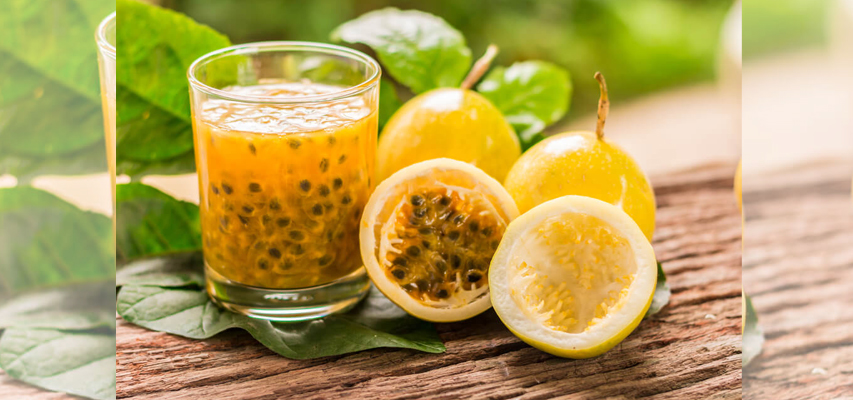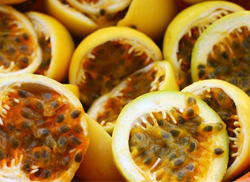
A steady flow of farmers visit Charles Mureithi’s home to get valuable lessons on how his foray into fruit growing became a notable success story in a county more famous for beef ranches.
Dimcom Eden Villa Farm is located in the Sipili area of Ng’arua, Laikipia County.
The 7.5-acre farm is one of the most popular tourist destinations in the county. Most of the visitors are farmers and customers who come to buy its products – fruits, yams and vegetables – but also to receive free knowledge from its owner, Charles Mureithi, on how to grow them profitably.
Mureithi mostly grows mangoes, pineapples, paw-paws and passion fruits. His vision is ‘’making agriculture and environmental conservation romantic.’ The secondary school teacher receives scores of farmers and offers free lectures on how to put a tract of land to maximum use to enhance food security.
The lessons include rain water harvesting techniques. He also teaches and then demonstrates how grafting of mangoes is done. At times he asks the visitors to do it practically as he watches and guides them. Mureithi envisions his farm turning out to be the most beautiful in the world.
“My aim is to make agriculture attractive to young people and I know I can make it.” When he bought the land in 2001, he started by growing maize and wheat.
He changed on fruit farming after some embarrassment. “I came back one day from work only to find my two children eating the peals of pineapples supplied by a certain vendor, “ he recalls. This was the turning point for him. Since then, his farming has been hugely successful, earning him income he could only dream of as a maize and wheat farmer.
When he planted his fruits in 2005, the 150 vines of passion he started with gave him enough returns to recoup his seed capital and since then he has not looked back. In 2011,
Mureithi was among 19 participants from 11 African countries who received a fully funded education tour of Japan, through JICA. During the tour, the budding farmers benefited from a course on the Implementation and Promotion of agribusiness in African Countries.
It was while in Japan that he learned of the “one village one product” concept which entails growing the right crop for the right region. Mureithi is convinced that Ng’arua is not a place for maize and wheat. He does grafting on his farm and a fruit-tree that usually costs Sh50 before grafting fetches him Sh100 or more after. He imparts these grafting skills on visiting farmers or holding demonstrations as he conducts them on a tour of his farm.
“I’m teaching hoping that they will also share this knowledge with others. I believe we have the ability but we don’t want to fully exploit our potential.” He has grafted his mangoes toproduce five to seven varieties from the same tree. “These trees are like my social security fund,” he says, gesturing toward the trees spanning his farm.
“My dad doesn’t like it when we throw away seeds,” his eldest daughter, Doreen Maina, 20, asserts. To her father, this is tantamount to throwing away money. Mureithi’s farm-help, Samuel Kamau, assists him to plant pawpaw seeds. The seeds germinate a few days later. “This plant is Sh50 from a seed that was initially discarded”, he points out. Mureithi adds: “The issue of food security is not the government’s responsibility but for the citizens as well. Why bother the government for food aid yet we have land which we have not fully exploited?” He also grows yams and practices organic farming so his produce is healthy for all. “I have never used any fertilizer or chemical on these yams and every year I come to the same spot for another harvest.”
He encourages visitors to try it on their farms. The fruit with the biggest profit margin, he says, is the pineapple and because it is drought-resistant it can keep producing for about seven years.
Mureithi harvests surface run-off water from the rain and stores the overflow in a ‘storage tank’ in the ground. He uses the water to grow giant, healthy kales. He grows enough vegetables for his family and for sale. He makes sure all his children know the value of commercial agriculture.
His youngest child, Ivy, 13, says: “We come here, pick some fruits even if it is not harvesting time.” She enjoys helping her father to plant various seeds. Her sister Doreen says: “The best part is harvesting because we harvest as we eat!”
His son, Paul, 16, desires to follow his father’s footsteps. “When I grow up, I must have a farm.”
He has been observing his father taking farmers round their farm. The boy believes he can explain what happens on their farm as well as his father. Mureithi’s wife Grace Maina does marketing for their produce. She says there is adequate market for fruits. “Even locally, our customers don’t get enough,” says Grace.
“If we had many of us growing fruits, we would export to Japan and elsewhere,” Mureithi says. “But mine alone is not enough. It’s just meant for the domestic market.” Based on what he has seen, Robert Mwangi, a local farmer, says: “I didn’t know that there is a lot more I can do on my farm to earn money. I would like to be self-sufficient.”
Family friend Lucy Mwangi has been Mureithi’s customer for a long time. “I have decided to increase the fruits on my farm. I’ll use his methods of preserving the seeds of fruits consumed in my home,” she says, adding that she hopes to realise a marked difference in a few years.
Financial and nutritious benefits of passion fruit

The passion fruit has many health, medicinal and economic benefits for its lovers. These include the fruit’s ability to prevent cancerous growth, enhance digestion, boost immune function, improve eyesight and skin health, regulate fluid balance in the body, lower blood pressure, boost circulation and improve bone mineral density.
In addition, it reduces signs of premature aging, lessens inflammation, improves sleeping habits and eliminates asthma. But for Laikipia farmer Mureithi, the fruits are his economic lifeline. He does grafting on his farm and a fruit-tree that usually costs Sh50 before grafting fetches him Sh100 or more after. He imparts these grafting skills on visiting farmers or holding demonstrations as he conducts them on a tour of his farm.
“I’m teaching hoping that they will also share this knowledge with others. I believe we have the ability but we don’t want to fully exploit our potential.”
He has grafted his mangoes in a way that produces five to seven varieties from the same tree. “These trees are like my social security fund,” he says.
